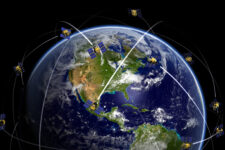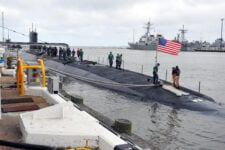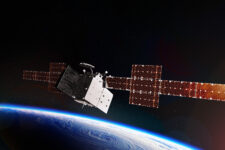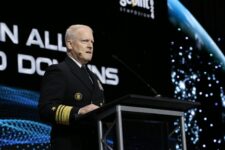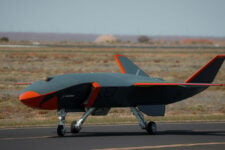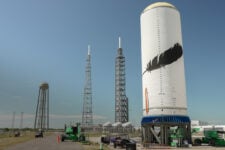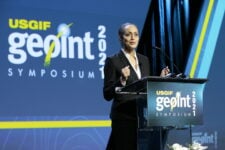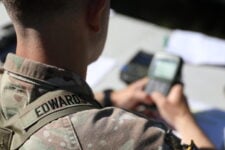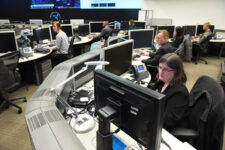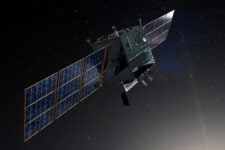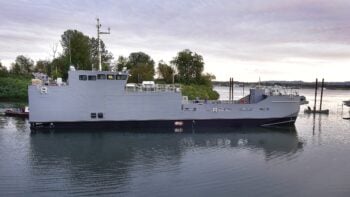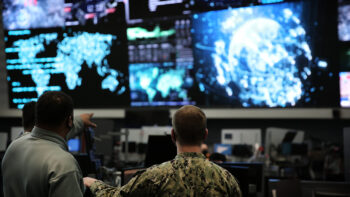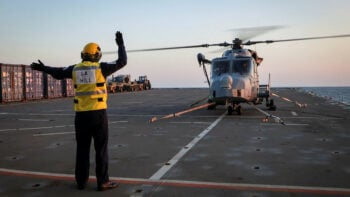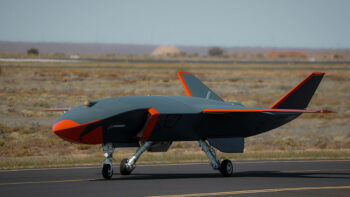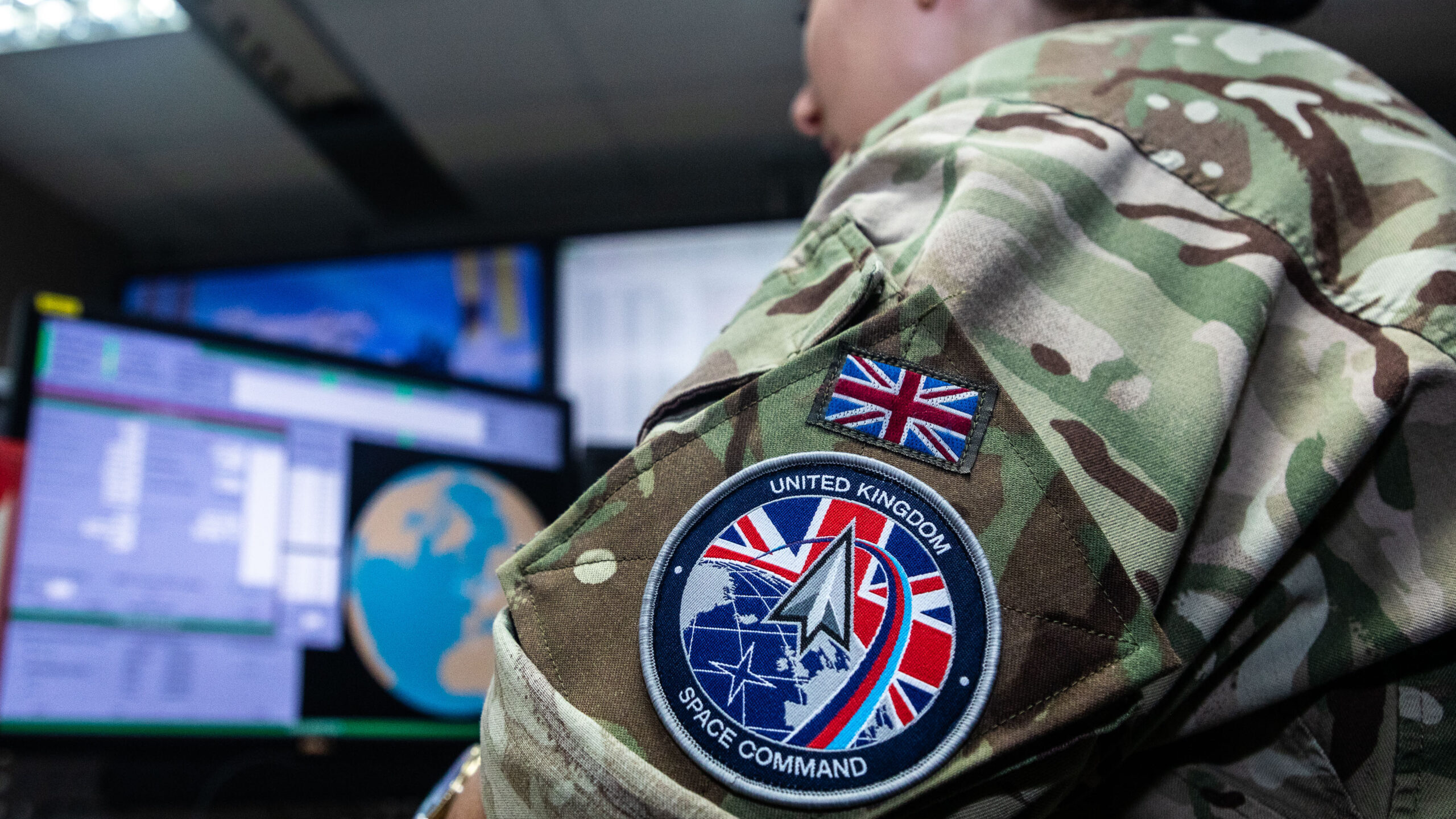
US Space Systems Command is exploring how it can create a “collective” supply chain with its close allies, in part to help each other fill gaps. (UK Space Command on Twitter)
MILSAT SYMPOSIUM 2023 — The Space Force’s primary acquisition command hopes to kick-start a strategic dialogue with allies on how to create a more resilient, collective supply chain at a first-of-its kind meeting next week, according to a senior Space Systems Command (SSC) official.
The SSC “international reverse industry days” will be held in Chantilly, Va., at the offices of The Aerospace Corporation on Oct. 25 and 26, and will involve representatives of eight allied governments and industries from those countries, Deanna Ryals, SSC director of international affairs, told Breaking Defense today.
SSC’s goal is to first survey the landscape of needed space capabilities, and then figure out where countries can help fill each other’s gaps, Ryals said. Once that is done, allied governments have to figure out how to get that “message” about what is needed to “collective” industrial base.
“Looking at our major partners, they are all working on acquiring their own national military space capabilities going forward. So, as they are acquiring and we’re acquiring, the question is: ‘How can we work collectively with industry as well and be more proactive about supply chain resiliency?'” she said. “Why wouldn’t we focus acquisition strategy [to] buy from you, or have you bring that into our partnership? And if we’ve got something that we can supply, let’s do that.”
The problem, she said, is that the Space Force has “no way, right now, to have that dialogue” with allies and their companies. “So, this is the first time we’re getting together to have that kind of dialogue to see can we be more strategic as like-minded nations about how we shore up the industrial base.”
For example, during a panel discussion at the Milsat Symposium here in Mountain View, Calif., today, Ryals said allied governments are keen to develop domestic capabilities and industrial base for space domain awareness, and increasingly for electro-optical remote sensing, synthetic aperture radar and intelligence, surveillance and reconnaissance.
“Every one of those areas are ripe for either exploiting what our allies and partners have, or allowing them to bring those capabilities … back to the architecture,” she said.
Brig. Gen. Jason Cothern, SSC deputy commander, told the Milsat audience today that the meeting is “a tremendous opportunity” to push forward the command’s efforts to drive “unity of effort with our international partners.”
SSC is “engaged with 28 countries currently. We have SSC international affairs professionals stationed in Australia, Belgium, Germany and Japan. We completed 92 agreements with 16 countries,” he said.
During the panel today, Ryals noted that there are a couple of immediate obstacles of which SSC is already well aware to creating a mutually reinforcing supply chain with international partners.
“Two things come to mind, challenges that we have right now. One is information sharing and the lack of ability to do so — whether it’s classification, or culture, or just the understanding of the tools to do so,” she said. “And then the second thing is culture. We have not yet fully embraced on the government side, I don’t think, opening up to partnerships with [allies] and industry. We’re getting there. We’re really working on that. We’ve got leadership support and direction to make that happen. But those are two areas that if we could fix those two things, we would be unstoppable.”
Industry participants at the conference echoed the problem of culture, asserting that there is very little lack of transparency on how information is tagged as “controlled unclassified information” (CUI) or “not releasable to foreign nationals” (NOFORN).
Claire Leon, director of SSC’s Space Systems Integration Office, acknowledged that it is “very easy” for DoD personnel to mark things NOFORN, and noted that it is her “hunch” that that is also the case for CUI.
